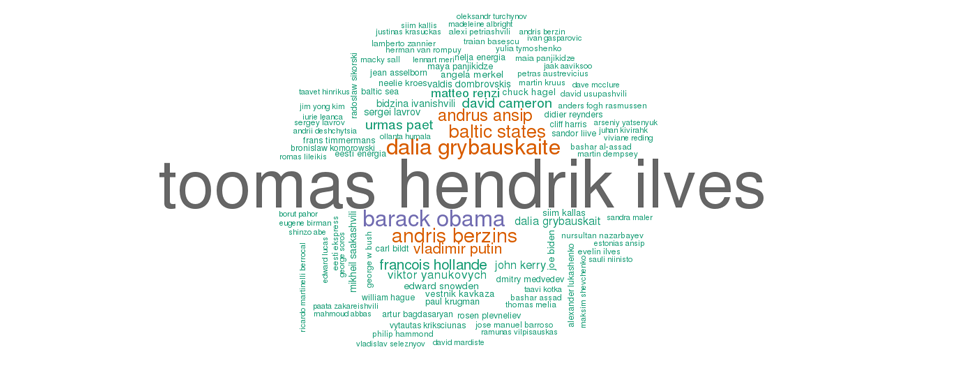GKG Word Cloud Visualizer

Dataset: Global Knowledge Graph
Description: Creates a beautiful publication-ready "word cloud" visualization of the top entries of a given GDELT GKG field from a given search.
Components: PERL, R, R 'wordcloud'
Acknowledgements: Makes use of the R 'wordcloud' package.
Example: Washington Post article on World Leader Word Clouds
The GKG Word Cloud Visualizer allows you to rapidly construct a "word cloud" visualization from a given field of the GDELT Global Knowledge Graph (GKG), creating a beautiful publication-ready visualization of the top entries of that field from a given search, and outputting a .CSV file that can be imported into other statistical and visualization packages for further analysis. No programming or technical skills are required - you simply specify a set of person or organization names, locations, or Global Knowledge Graph Themes, along with an optional date range, along with which field you would like to visualize (names, organization, locations, or themes) and the system will automatically search the entire Global Knowledge Graph for all matching entries and construct a word cloud showing the top 100 entries matching your search criteria. Your results will be emailed to you when complete, usually within 10 minutes, depending on server load and the time it takes to perform the analysis.
All GDELT Global Knowledge Graph records are scanned for your search parameters and a ranked list of all people/organizations/locations/theme (depending on what you select below) is compiled as the input to the word cloud. Thus, selecting "Nigeria" as your search criteria and "Person Names" as the Word Cloud Field will generate a word cloud of the top 100 people that appear in coverage of Nigeria, along with a CSV file listing how frequently each appears.